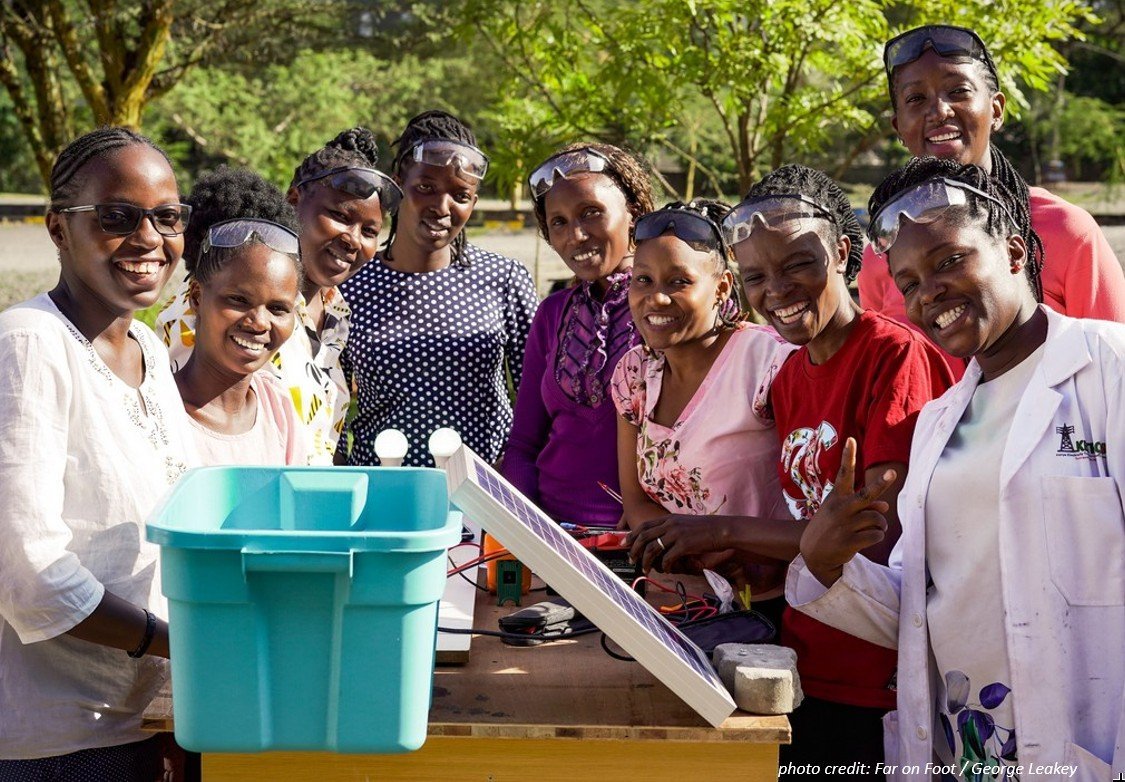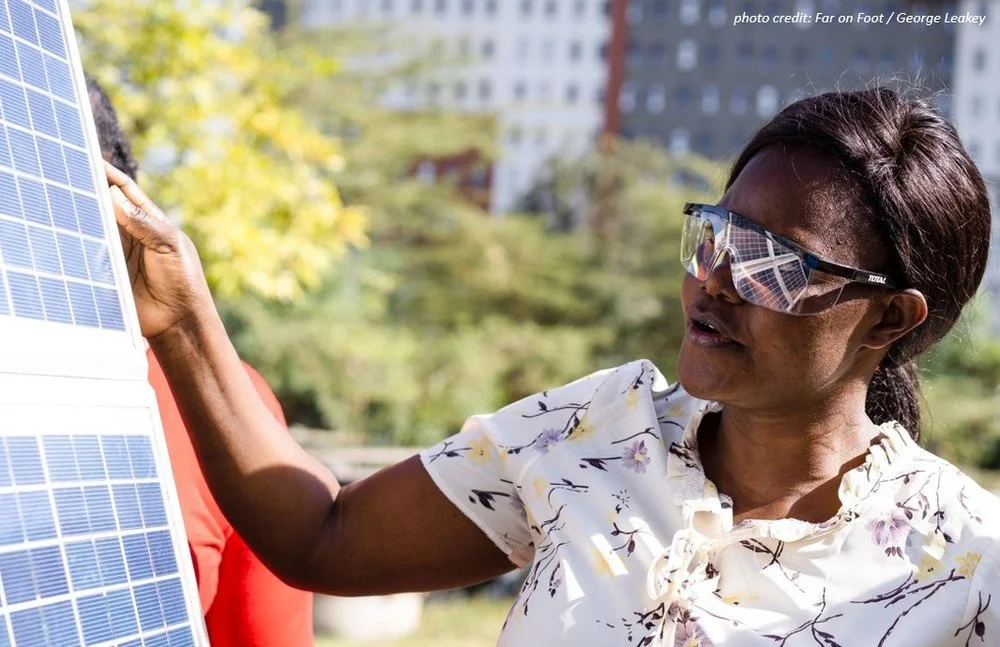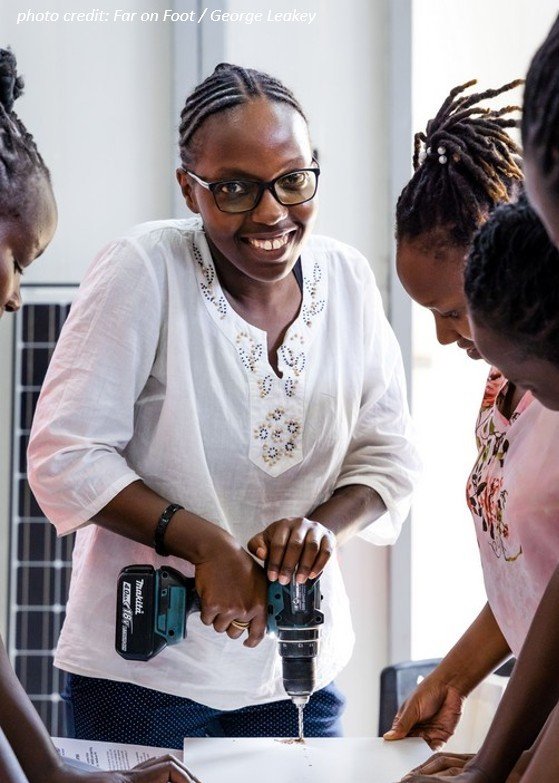International Women's Day: Hands-On PV Training in Kenya
In March 2022, the world celebrated and honored the social, political, economic and technical achievements of women. Remote Energy and our partners from WISEe in Kenya joined the global celebration by holding an all-women, hands-on, technical PV training in Kenya.
For the past two years the global health pandemic has effected nearly every facet of our lives. Although the availability of education and training opportunities suffered significantly, distant learning opportunities filled the void by turning our homes into classrooms and offices.
Over he past two years women from over 15 countries joined our online program and studied the fundamentals of PV from their phones, tablets and computers. Remote Energy’s innovative curriculum and live zoom sessions provided the participants with a solid understanding of the fundamentals of DC solar electric systems. It allowed women to share their experiences and questions and to develop professional networks and friendships in our online forums. With the foundation in place, online participants were ready to embrace the
technology in-person. Anyone who has studied PV installation would agree that there is no substitute for hands-on learning. To fully understand the intricacies of PV system design and installation one must interact personally with the tools and the equipment: hold a PV module in your hands, experiment with shading, understand the wiring and connections, and most importantly learn how to work safely with electricity and all the tools of the trade — topics that are impossible to move in-doors and online. After months, even years of waiting, graduates of Remote Energy’s online classes in Kenya finally had the opportunity to embrace PV in-person.
The sun was shining at Strathmore Energy Research Centre and women filed in from Nairobi and the surrounding communities. Tools, meters, charge controllers, PV modules and other specialty equipment filled the classroom and lab area. Under the professional guidance of Remote Energy’s partner instructor’s from WISEe, each student had the opportunity to assemble, wire, test, commission and troubleshoot a solar powered, DC lighting system. This included an introduction to all the tools commonly used by PV installers in the field. There was lots of excitement and plenty of smiles as participants practiced drilling holes, stripping wires, making electrical connections, setting up ladders, and using multimeters, inclinometers, pyronometers and other PV specialty tools. Historically, it has not just been a global health pandemic that stood as a barrier between these women and their hands-on PV training — it was the simple fact that they were women. The PV industry, like most technical sectors, has historically been dominated by men. This is true in the field as well as the classroom. Teddy Nalubega, chairwoman of WISEe and co-instructor for the Kenya workshop, experienced this personally as her technical education started in Uganda where she was one of very few women in her engineering program. Opportunities to learn about renewable energy and solar power brought her to Kenya where she was inspired to continue her quest for knoweledge and ambition to uplift other women. Teddy has
now been a PV trainer since 2014 and her group of all-women PV installers and educators have since gone on to install solar in over 150 schools in east Africa. It was the training opportunities with other women that have inspired and fueled their success.
Remote Energy team members have been working diligently to bring gender equity to the PV industry while teaching and promoting women’s-only technical trainings for over 20 years. RE co-founder Carol Weis explained, “…we have found that many women prefer to attend technical classes when the classes are taught and attended only by women.” It is proven that the presence and guidance of female instructors creates a more comfortable overall environment for female trainees, enabling greater participation in the class and demonstrating that women can succeed in a technical field. The class participants at this hands-on training in Kenya agreed. In fact, every single women noted in the class evaluation that it was important to them to attend an all-women class. Milicent Ademba, a participant from the Nairobi
area shared that in an all women class “.. one interacts freely and knowledge is impacted without judgements”. Laura Lepore, another participant noted that, “the class encourages women to speak up and be confident in asking about what they don't know without judgement… it is an enjoyable time of women empowering women”





